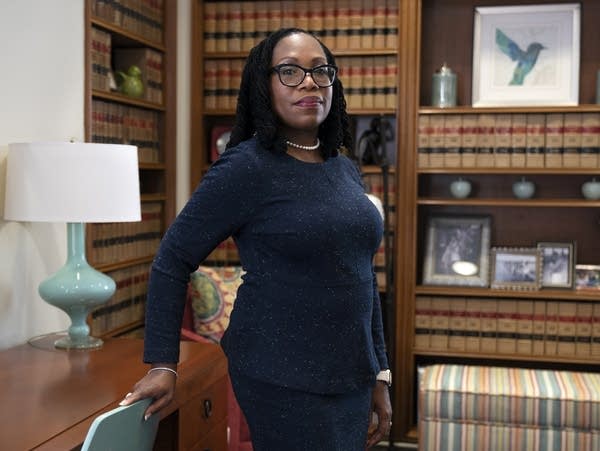A PD on SCOTUS

Since there are tens if not hundreds of thousands of people fully capable of being a Supreme Court justice, presidents have always considered various forms of representation when choosing nominees, which is entirely appropriate. It’s good that Biden has made the long overdue first appointment of a Black woman to the Supreme Court. But as Irin Carmon observes Jackson is an excellent selection for another reason as well:
To the list of obvious firsts, a Justice Ketanji Brown Jackson would add another: the first former public defender to sit on the United States Supreme Court. It’s an entry on her résumé that a few years ago might have been politically unthinkable for a nominee to the highest court but is now, thanks to years of work by the progressive legal movement and criminal-justice reformers, a boon.
Jackson served as a federal public defender for only two and a half years, but that’s more experience than any current or past member of the Supreme Court has had — ironic given that the Court in 1963’s Gideon v. Wainwright declared that “lawyers in criminal courts are necessities, not luxuries,” requiring states to provide attorneys to those who can’t afford them.
Paired with her longer stints at the U.S. Sentencing Commission and going all the way back to her Harvard undergraduate thesis (“‘The Hand of Oppression’: Plea Bargaining Processes and the Coercion of Criminal Defendants”) and her subsequent Harvard Law Review article (“Prevention Versus Punishment: Toward a Principled Distinction in the Restraint of Released Sex Offenders”), Jackson has shown a deep interest in trying to ensure fair processes for often unpopular clients. In a nice bit of continuity, Jackson clerked for Stephen Breyer, the justice whom she would replace. But her confirmation could be a jurisprudential break from a man who repeatedly voted with law enforcement over individual rights.
Like race and gender, professional background is not destiny — Sonia Sotomayor, a former prosecutor, is the most committed civil libertarian nominated to the Supreme Court since John Paul Stevens if not William O. Douglas. But this is still a very important perspective to bring, even if she might have to wait a long time to write or join many important majority opinions.


